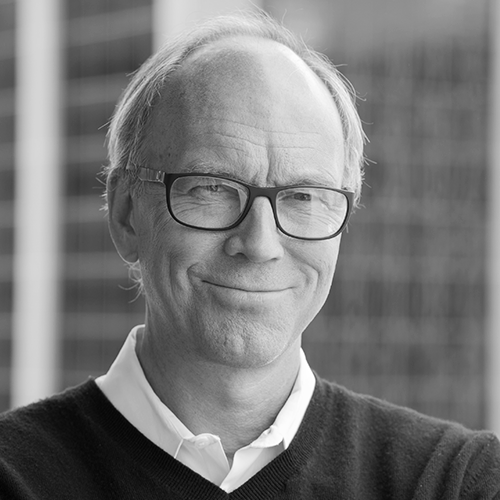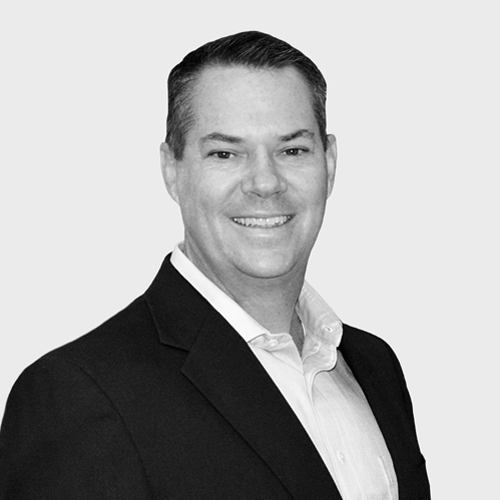As the Berlin Wall was being dismantled in 1989, Dimiter Todorov’s world of possibilities suddenly expanded. Born and raised in Bulgaria under communist rule, Todorov was enrolled in high school while the nations behind the Iron Curtain experienced dramatic upheaval.
The momentous events altering geopolitical maps would also have a dramatic impact on his life.
Now vice president of legal for Scotts Miracle-Gro, Todorov followed his father’s path by enrolling in a Bulgarian law school. The son of a prosecutor practicing under the communist Bulgarian regime, Todorov’s life would go in a much different direction than his father’s though. He was part of the first wave of Bulgarian students allowed to further their studies in the West. Todorov relocated to the US heartland, and after a period of adjustment to a new language and culture, thrived in his undergraduate studies at Sioux City, Iowa’s Morningside College, and later at Creighton University School of Law.
His background has provided a distinct perspective on practicing law in the United States, and, as an in-house attorney for a prominent home and garden product supplier, he has learned valuable lessons on becoming a key business strategy contributor. In fact, Todorov has demonstrated his business savvy enough to expand his contributions well beyond simply dispensing legal advice.
He has indeed come a long way from an upbringing under a regime that didn’t have much use for private businesses and kept tight control over the populace. “There was a diminution of personal rights,” Todorov recalls of the old socialist state. The contrast was sharp from that culture to American ways, where the freedom to criticize the government and engage in irreverent satire on television is taken for granted.
While he was prepared academically to attend college in the United States, the much freer culture here presented a bit of a shock, but he adapted well and embraced American life. After passing the bar, Todorov spent twelve years at an Omaha-based law firm, where, as a member of the international law and intellectual property groups, he advised clients on international transactions, regulation, and various aspects of intellectual property.
Scotts’ Grassroots Giving
1. Scotts works to support environmental research, restoration, and education. For instance, it provides a grant to fund research by the Ocean Research & Conservation Association, which focuses on Florida’s Indian River Lagoon. And it supports Bay Grasses and Classes, a Tampa Bay, Florida-based environmental restoration program.
2. Scotts recognizes the importance of youth education—especially in underserved communities—and seeks out programs to promote careers in biology, chemistry, ecology, and natural science. One example is the Hands On Plant Science program, which takes students from Washington, DC, public schools for horticulture classes throughout the summer.
3. Scotts supports personal wellness, having raised funds for medical research and treatment. In fact, for more than six years, Scotts has achieved platinum status in the American Heart Association’s Fit Friendly program, which recognizes workplaces that go above and beyond in the area of employee wellness.
Source: Scotts Miracle-Gro
Todorov joined Scotts in 2008, and although the shift from law firm to in-house attorney wasn’t as dramatic as the move from the communist bloc to the West, it did hold surprises. “You need to be flexible and be able to make fast decisions with less-than-perfect information and without doing exhaustive research,” he says. “As an outside counselor, you can say to a client, ‘You have a 40 percent chance of being sued or getting into trouble with regulators if you make this decision.’” When you are in-house, however, you have to help make the decision and buy into it even if you harbor some reservations, he says. You can’t be a detached advisor.
In-house lawyers also face the thorny challenge of averting the reputation of a cop who quashes the ideas of business executives. “I try to suppress the urge to say, ‘No, you can’t do this,’” he says. Rather, he might offer, “You probably can’t do that the way you want, but there may be another way.” Then he hashes out possible alternative strategies with the executive.
To learn more about the business, Todorov has regularly sought opportunities to interact with business groups throughout Scotts. “I invite myself to meetings all the time,” he says. “People usually don’t mind it. I get to learn about what others in the business are thinking and working on.” This, he says, makes him a more valued legal professional and has made it possible for him to take on strategic leadership roles such as his recent heading of a business team that investigated a possible acquisition. Although that deal ultimately did not go forward, Todorov says he learned a lot from the experience and hopes to have others like it.
“I was surprised about the sheer volume of considerations that you have to deal with that have nothing to do with legal matters,” Todorov says. “About 50 percent of the work is negotiating broadly within your own organization.”
It’s a matter of generating internal buy-in and support for key decisions and new initiatives, he says. It’s a big challenge, but he has had some success in navigating the internal political waters and enjoys that aspect of the work.
“I invite myself to meetings all the time. People usually don’t mind it. I get to learn about what others in the business are thinking and working on.”
Todorov’s background has been advantageous to his work in a complex global environment. As a native European, he is comfortable with the diverse platform of cultures, which makes it easier to find common ground with Scotts’ business partners as well as the company’s executives and attorneys across multiple countries and legal regimes.
US lawyers, Todorov says, are cut out to perform well in these complex multinational venues. “The legal environment in the United States is more complicated and sophisticated than in other parts of the world,” he says.
As a result, US lawyers, along with those in the United Kingdom, tend to be the most sophisticated attorneys in the world.
Thus, his training and experience domestically is great preparation for many legal challenges found abroad.
It seems Todorov’s long personal and professional journey has enhanced his career.
There is certainly something to be said for learning from a broad range of experiences to inform one’s work. It’s true for any lawyer.


